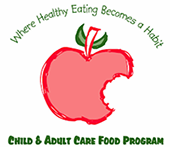Remember to keep fruits and vegetables separate from raw eggs, meat, poultry, and seafood while shopping, preparing, and storing. Keep raw meat/ poultry/ fish in leak-proof containers on the bottom shelf in the back of the refrigerator, where it is coldest. Use separate cutting boards for fruits/ vegetables and raw meat/ poultry and fish to avoid cross-contamination. Rinse fruits and vegetables well under running tap water just before eating, cutting, or cooking with them. Rinse fruits and vegetables even if you plan to peel them before using them in the recipe. Refrigerate produce that has been cut. Avoid letting cut fruits or vegetables sit at room temperature more than 2 hours before refrigerating. Use an appliance thermometer to be sure the temperature in your refrigerator is consistently at 40°F or below and your freezer is at 0°F. Avoid crowding your freezer and refrigerator to allow air to freely circulate. Thaw foods in the refrigerator to avoid exposing foods to the “temperature danger zone”, which is temperatures between 40°F. 140°F, when foods are more susceptible to bacteria proliferation. Handle raw eggs carefully to avoid the possibility of food-borne illness. Check proper cooking temperatures before serving food to children. When buying eggs, only buy refrigerated eggs with clean, unbroken shells. Open the carton and check to see that the eggs are clean and that the shells are not cracked. Bacteria can enter through cracks in the shell. Check the expiration date stamped on the carton. Store raw eggs inside of their original carton and on an inside, back shelf of a refrigerator. Cooked or raw eggs left at room temperature should be thrown away after 2 hours or 1 hour in warm weather. Avoid any incidence where a child would taste raw eggs. Foods made with eggs should be fully cooked before eating.
There is no need to rinse USDA-graded eggs, they are pre-washed at the processing site. Rinsing eggs may increase the risk of contamination, as water can enter the egg through the pores in the shell. Anything that touches raw eggs needs to be washed before being used again, including hands. Do not mix a raw egg with the same fork you use for eating. Clean all kitchen counters, utensils, kitchen tools, and surfaces that raw egg has touched with hot, soapy water. Eggs should be eaten within 3 to 5 weeks of purchase. Serve egg dishes immediately after cooking.















